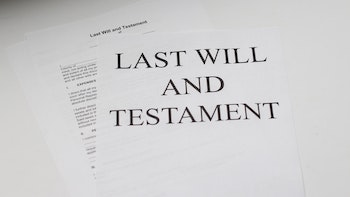Why do I really need a will? I imagine just about everyone has at least thought about getting a will at some point in time, but many studies show that over half of all adult Americans do not have even the most basic estate planning documents. I think a big reason that people don’t have one in place is that they don’t really understand what a will can do for them. Or to put it another way, I think they don’t understand what can happen if they don’t have a will. So…
Why do I really need a will?
Below are what I would consider the top four reasons why people should have a will:
1. If you die without a will in Texas state law requires the court system to use very strict rules to decide who gets which parts of your estate. Your property could end up getting distributed in ways that you would have not liked at all. This could cause financial stress and hard feelings for some people who you care about the most. On top of that you might inadvertently give important assets to people who you believe don’t really need and/or deserve anything from you.

Photo by Melinda Gimpel on Unsplash
2. If you have children under the age of 18 and die without a will or some other appropriate estate planning document that says who you would want to be the guardian of your children, then a judge will be required to appoint a guardian based on statutory rules which means your children could go to someone you wouldn’t have chosen to take care of them. If by some awful chance both parents die then the law requires the judge to use certain guidelines to appoint someone to raise your children. This could possibly lead to someone raising your children that you never would have chosen.
3. Your assets might get tied up for a long time, possibly years, causing financial and emotional stress for the most important people in your life. When there isn’t a will court proceedings could be required to determine who the rightful heirs are. Likewise, the court may have to appoint an administrator, and this administrator may be required to post a bond. On top of all this, the court may be forced to require a much more court-supervised administration of the estate. These things can all make the estate administration process take much more time than necessary.
4. Your estate and heirs could possibly spend a whole lot more money on legal fees and court costs than would have been required if you had had a proper will in place. As mentioned before, if you die intestate (without a will) there may need to be heirship proceedings just to figure out who the rightful heirs are, and sometimes there are big, long battles in court between the potential heirs fighting over the assets. Needless to say, court battles can be very expensive, wasting vast amounts of money that could have been used for much more useful things such as college educations, down payments on a house, retirement, etc.


